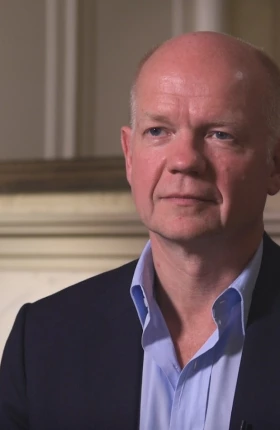In today’s fluid political and economic climate, business’s global narrative of progress is being called into question, and executives are facing increasing uncertainty. In this interview, Martin Reeves, the director of the BCG Henderson Institute , explores current global economic trends and their significance for corporate leaders.
What are the trends that are shaping the path of global economic progress?
There are a number of important trends playing out. We have had several decades of continuous progress in technology and global economic integration. This has reshaped the nature of competition, speeding it up and making it more unpredictable. Unfortunately, we also see a side effect of that progress, which is increasing inequality within countries. That is driving political outcomes, a tendency toward populism and economic nationalism, which in turn is driving outcomes in the economy. So we’re seeing a great deal of unpredictability in policies, growth rates, interest rates, currencies, and so on. If you add all of that together, we’re currently sitting on top of levels of unpredictability that are unprecedented in recent times.
Brexit is obviously a major development that has created a new set of challenges for many companies. What do executives need to focus on as they navigate these issues ?
I see a tendency for companies to react to the discontinuities and uncertainties created by events such as Brexit with what I call the three Fs.
The first is “firefighting,” which is responding only to immediate consequences—for example, the depreciation of sterling. The second is “forecasting,” which is pursuing a single answer to the question, what will happen as a result of Brexit? Of course it may not be possible to know for sure what single outcome is destined to happen. The third is “freezing,” which is accumulating cash and postponing investment—essentially, putting business decision making on ice.
I think a better response is to upgrade our approach to strategy to better cope with uncertainty. One way is to look not only at a point in time but at an ongoing process. The ramifications of Brexit will continue to unfold over time. There is no clear endpoint. Another way is to look not for a point forecast but at a range of plausible scenarios. We simply cannot know for sure how Brexit is going to play out. It depends on the reactions of other nations. It depends on the stability of the EU itself and a whole series of other questions. The third way is to set the events in a broader context—Brexit cannot be looked at without looking at the fate of the European Union or at the global economic situation.
Another way to upgrade our approach to planning under uncertainty is to continuously examine these sorts of questions—in other words, to have an “always-on” approach to strategy, rather than a once a year exercise.
What can corporate leaders do to address the issues of economic inequality and social dislocation?
We looked at this in a recent HBR publication called “ An Agenda for the Future of Global Business .” We believe that there are seven things leaders can do to contribute to the sustainability of their own enterprises and of global business overall without relying on policymakers.
One of them is leveraging ecosystems. We now have platform businesses that orchestrate the ecosystems of hundreds of companies and thousands of customers, so that’s a new type of economic inclusiveness. That potentially gives small companies a stake in the game.
A second lever is changing the narrative around Saving Globalization and Technology from Themselves . Increasingly, technology is seen as a job destroyer and globalization is seen as a major driver of inequality within nations. Whether you fully buy that or not, the narrative needs renewing, and I’d argue the reality does, too.
The third thing is increasing access to basic goods and services. While the price of many goods and services has actually declined in real terms over the years, the opposite is true for a handful of basic goods. They’ve become proportionately more expensive, especially for less-privileged people. One of them is health care, especially in the US. Another is housing, and a third is education. Businesses can take a hard look at low-cost alternatives for those basic goods.
Businesses can also look at what I call a social business model, using business perspectives and capabilities to attack social problems. For example, we’ve seen some youth unemployment schemes in Europe run effectively by businesses.
A very broad area where companies can take action is renewing human capital. Economists tell us that we will probably bounce back in the long run in terms of new jobs replacing the jobs displaced by technology. But of course we also have to worry about short-term frictions. I think companies can play a part in making sure that we’re continuously renewing human capital. Perhaps the companies that are causing the technological disruption could take more responsibility for this in their own interest.
Companies can also take a look at remuneration and make sure that the differences between the individuals with the highest remuneration and those with the lowest are transparent and well justified by merit in a way that’s socially acceptable.
Finally, with technology itself we always have a choice. We can deploy it from the back office forwards, which tends to result in cost reduction and in some cases aggregate job reduction, if demand doesn’t expand proportionately. Or we can start from new needs and work backwards. If you’re deploying technology to satisfy new needs, you tend to expand demand and not necessarily reduce employment.
These seven things, taken together, can make a major dent in the impact of technology and globalization on inequality.
Where are the opportunities for companies in such a turbulent environment, and how can companies position themselves to win?
The sort of turbulence we’ve been talking about is of course in absolute terms an obstacle, a disadvantage to companies. But the point is that it’s a disadvantage to all companies, and it leaves open the question of competitive advantage. How can we use these events to our own individual competitive advantage? I think there are a number of ways. One way is to develop what I call adaptive advantage : if we can adapt to change more accurately, faster, and at lower cost than our competitors, we will be competitively advantaged even if we are inconvenienced by change.
A second way is to build a visionary advantage—that is, to be the source of disruption instead of a victim, to be the innovator. A third way is to develop what you might call a collaborative or shaping advantage. This means that you influence others, influence ecosystems, influence policymakers, create new narratives, and essentially shape circumstances rather than letting them shape you.
These three kinds of advantage are essentially responses to the question, how can I play the game better than my competitor ? A different way to look at the question is in terms of the longevity of corporations. Corporations are dying faster and faster as a result of the high-level change going on around us, so a new way of thinking about competition is to outlast your competitors—to play the longevity or resilience game. I think companies have a lot to learn from biological systems about what constitutes true resilience, so a fourth mechanism would be to create competitive advantage through greater resilience.
If you look at strategy in particular, how do companies need to adjust their strategic approach to meet these conditions?
We wrote about how companies need to change their approach to strategy to cope with unprecedented levels of uncertainty in our recent book, Your Strategy Needs a Strategy . The basic idea is that companies need to move away from a planning-centered approach to strategy and embrace other approaches as appropriate
There are five basic approaches, which link to the new kinds of advantage we talked about earlier. One is indeed planning, which is still appropriate to some situations but is no longer a panacea. The others are adaptive strategy, which calls for adapting to changing circumstances; visionary strategy, the creation of new competitive spaces; shaping strategy, the collaborative shaping of ecosystems; and renewal strategy, the renewing of one’s game for relevance in a changed environment.
I would contend that any large company now needs five golf clubs to play the game of strategy and that one is no longer sufficient.
You may contact Martin Reeves by e-mail at reeves.martin@bcg,com or follow him on Twitter @MartinKReeves .
The BCG Henderson Institute is Boston Consulting Group’s strategy think tank, dedicated to exploring and developing valuable new insights from business, technology, and science by embracing the powerful technology of ideas. The Institute engages leaders in provocative discussion and experimentation to expand the boundaries of business theory and practice and to translate innovative ideas from within and beyond business. For more ideas and inspiration from the Institute, please visit Featured Insights .






